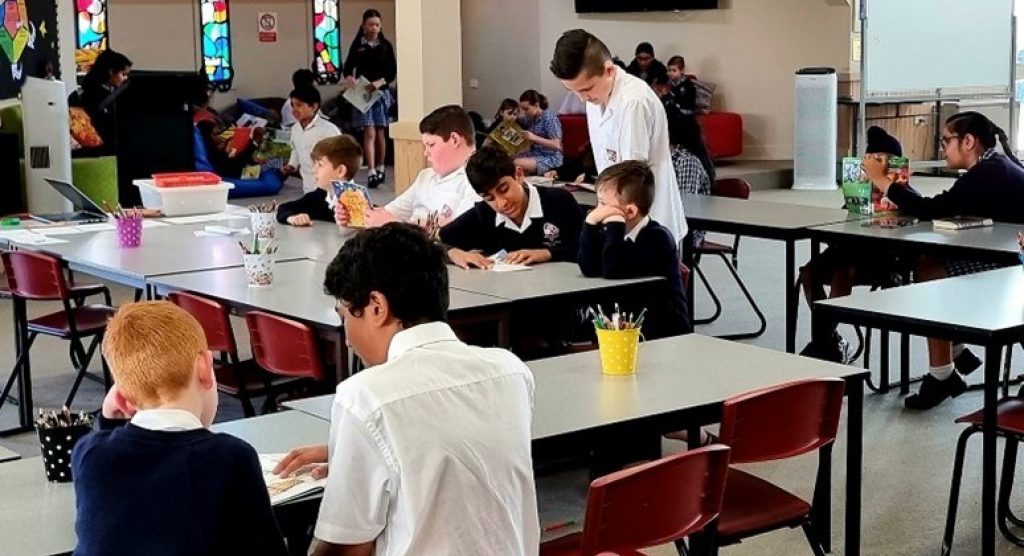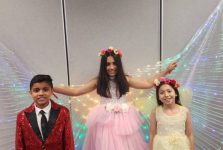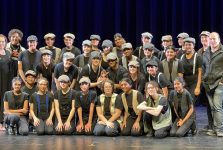The Benefits of Reading to Others
When students are learning to read, we get them to read aloud. We ask them to practice sounding out the words and help guide them to put sentences together, to understand how the punctuation can affect the way they read; how inflection in voice can change the meaning and have fun with the story in front of them. Parents play a vital role in this at home, and a love of reading forms.
As a student progress through school, the family bedtime stories stop. We ask our kids to read to themselves for a bit before bed, but older primary students and senior students do not often read aloud anymore to enjoy a story. Only when called upon in class (which can seldom happen) do they get the opportunity. For some, it is not a great experience. For others, they relish it but they seem too few and far between. So how can we create opportunities to practice this without the stress of reading to a whole class of similar aged peers?
When an older student is tasked with reading to a younger student, the benefits are numerous. And they work both ways. Students are able to practice their skills in a non-confrontational and often non-judgmental way. The younger students are so excited to spend time with the older ones that they engage in ways that are different from when a teacher reads to them.
Benefits for the older student
- Practice their reading
- Identify story characteristics
- Practice their variations and inflections of voice
- Develop skills in selecting stories to read
- Can develop their reading in a less stressful manner then when reading to an adult
- Can choose easier texts to practice with without judgement
- Develop their conversation skills outside of their own age group
- Practice their mentoring and leadership skills
Benefits for younger students
- Listen to how the written word is expressed orally
- Develop their oral language
- Engage with characters and stories to see how to problem solve
- Learn new vocabulary
- Follow along with the text as the book is in close range (compared to when a whole class is looking at the same book)
- Make predictions about what might happen next
- View how images and text relate to each other to help tell the story
- Exposed to books from different genres that they may not have selected otherwise
- Develop their conversation skills outside of their own age group
When there is a small amount of time where classes cross over in the library, it is fantastic to see students participating in these opportunities. Friendships form across year levels that can continue to develop over their schooling. For many, knowing they have a friend at a higher year level can help with the numerous transitions that they will encounter throughout their schooling. Any opportunity to foster relationships and engage in reading is time well spent.
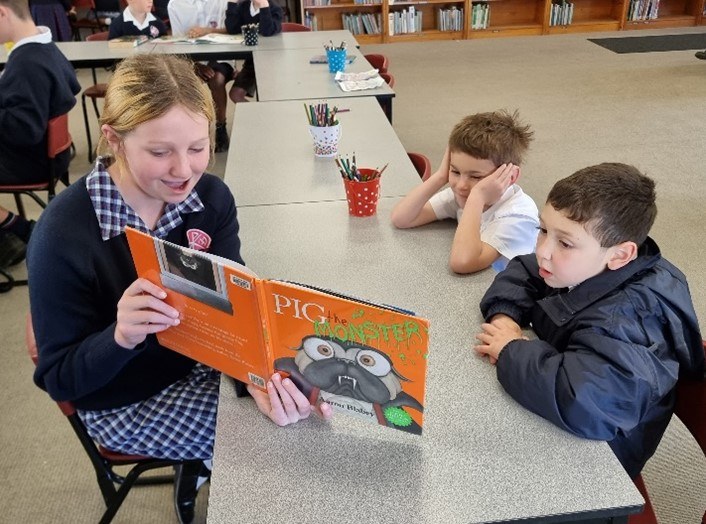
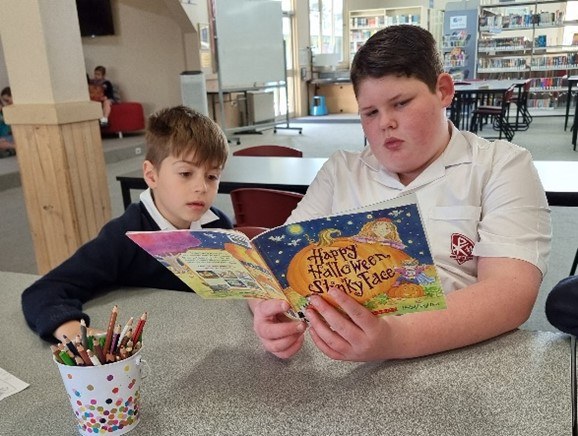

Happy reading!
Diana Thompson
Head of the Joan Reid Resource Centre


 1271
1271